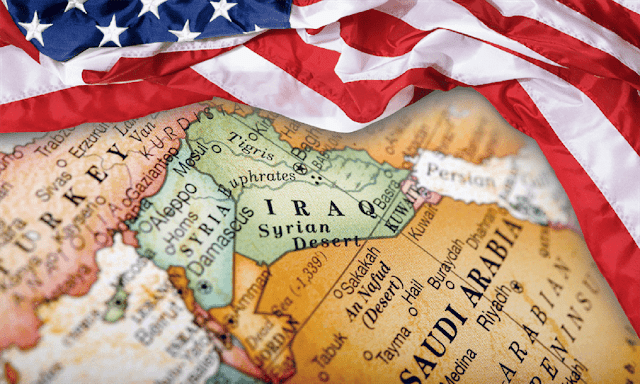Understanding Middle East Dynamics: Current Trends and Recent Developments
Understanding Middle East Dynamics: Current Trends and Recent Developments
Many world regions have been in geopolitical interest for long. This is due to quite a number of factors, which are complex historical, cultural, and political interactions. Nowadays, this part of the world has become even more contentious by raising many issues due to changing alliances, continuing or spiking conflicts, and new threats. Let's look into the current state of affairs in the Middle East, including dealing with the key issues, and the latest updates shaping the region.
Key Issues in the Middle East Dynamics
Israel-Palestine:
Probably, the most longstanding and contentious issue in the whole region is the Israeli-Palestinian conflict. The recent violence, new settlement expansions in the West Bank, and disputes over Jerusalem have played their parts in fanning the flames. New flare-ups in Gaza again brought to the fore the humanitarian crisis faced by Palestinians and the difficult political context that any solution was forced to contend with.
Iran's Role:
Iran is an important player within the politics of the Middle East - it continues, for example, to be one of the most prominent actors backing proxy forces in Syria, Lebanon, and Yemen. This fact, among others, has kept the Iranian nuclear program and the question of its development at the core of tensions between the West and Iran and, more specifically, has raised concerns related to regional security. The recent explosion of the newest escalation in the conflict with Israel, including strikes against Iranian military facilities and threats of retaliation, have complicated already complex security landscape.
Arab-Israeli Normalisation:
The normalisation of relations between Israel and several Arab countries through the Abraham Accords of 2020 has completely transformed the state of the region. Countries such as the UAE and Bahrain have, in the name of diplomatic relations, brought into their relationship the twin actors of economic cooperation and security partnership with Israel. Arab consensus for the Palestinian cause complicates these relationships and questions at the ultimate level the viability of such accords.
The Syrian Civil War:
The Syrian war is one of the most complex wars both domestically and internationally. It started in 2011 and has transformed into a crisis involving different actors in terms of both domestic and international prowess, for the government still controls most of the land; however, ongoing clashes between the different factions and foreign military forces that mostly include those of the U.S. and Russia keep the situation static. However, the humanitarian cost remains devastating since millions are displaced and need help.
Yemen Crisis:
Yemen has been in a full-fledged civil war since 2014, with this being one of the worst humanitarian crises in the world. It is between a Saudi-led coalition that supports the government of Yemen and Houthi rebels, which are supported by Iran. Despite tactically agreed-upon ceasefires and peace talks and negotiations that have occurred time and again, the crisis is very dire in the nation, with widespread famine and disease affecting millions of Yemenis.
Latest Updates (October 2024)
Escalating Gaza Violence:
Gaza witnessed renewed clashes between Israel and Hamas early October 2024, killing hundreds on both sides. The airstrikes that Israel launched in the military infrastructure have been replied with a heighten rocket fire from Hamas. Civilian casualties also began to rise, as international calls for a ceasefire have gained momentum but have yet to bring about a resolution.
Iran-Israel Tensions:
Within the last few weeks, Israel has intensified its attacks on Iranian interests in Syria, apparently targeting arms supplies to Hezbollah and other proxy forces. The Iranian regime has threatened retaliation, and a broader conflict in the region now appears more likely than not. Diplomatic efforts by Qatar, Turkey, and other countries have not yet succeeded in calming tensions.
Efforts at normalisation continue to be pursued:
Following the Abraham Accords, other countries have begun to normalize with Israel: It has been reported that Saudi Arabia is contemplating a formal agreement, conditional on various concessions from the state of Israel regarding the Palestinian state. This potentially opens the door for a shift in regional alliances and could affect the trajectory of the Israeli-Palestinian conflict.
U.S. Involvement and Policy Shifts:
It restates the two-state solution that features in the Biden administration's plans, ramping up diplomatic engagement with the leaders of Israel and Palestine. The current spate of U.S. officials' visits to the region is geared toward redressing the humanitarian concerns of Gaza and encouraging dialogue, although it remains to be seen how far the U.S. would push without risking alienating their more powerful Israel allies in a bid to assuage Palestinian concerns.
Economic Developments:
Some of the Middle Eastern countries are aimed towards economic diversification and post-pandemic recovery. The UAE as well as Saudi Arabia, in particular, is driving the process to bring foreign investment into the economy while giving a boost to innovation in fields like technology and renewable energy. These economic plans, however, are still vulnerable because of the general geopolitical tensions prevalent in this region.
Conclusion
Now, the dynamics in the Middle East are forever shifting--historical grievances, existing conflicts, and changing alliances. Doing this does not mean that the international community cannot contribute constructively to a dialogue and cooperation that would promote stability and peace within and across borders in this region. Clearly, the recent events at last symbolize a sense of urgency in seeking diplomatic ways out of the established, long-standing and particularly the Israel-Palestine relationship towards a safer, more prosperous Middle East.
This requires that one be very informed and, as we go forward, take an active part in discussing all this because the fallout will no doubt go on to reach far beyond the region and much further into the world at large.




Comments
Post a Comment